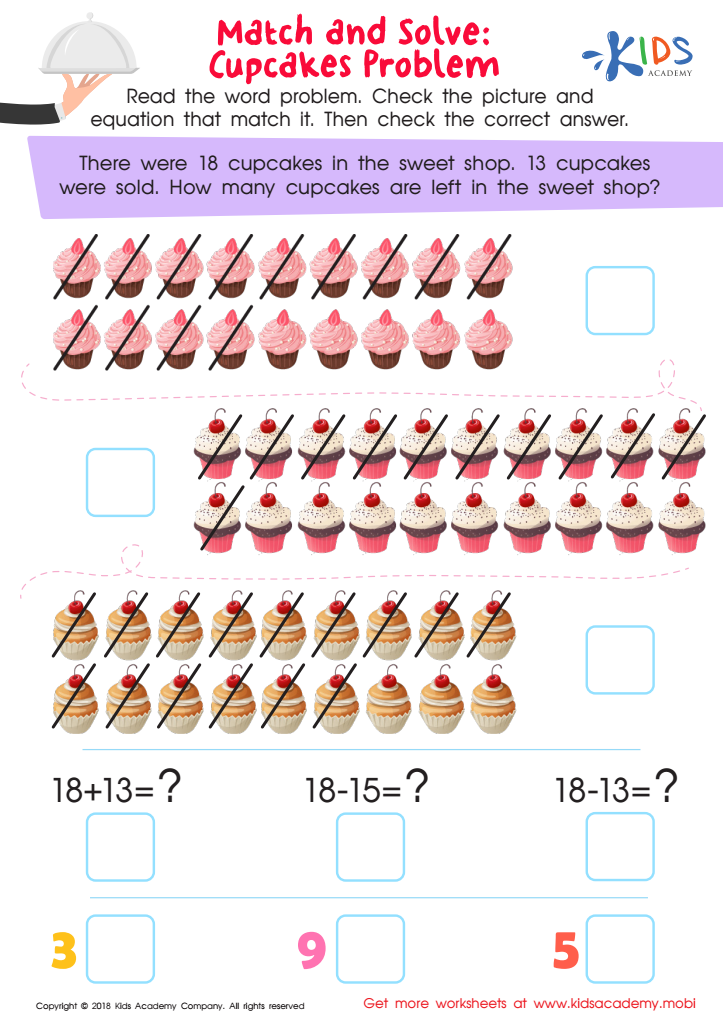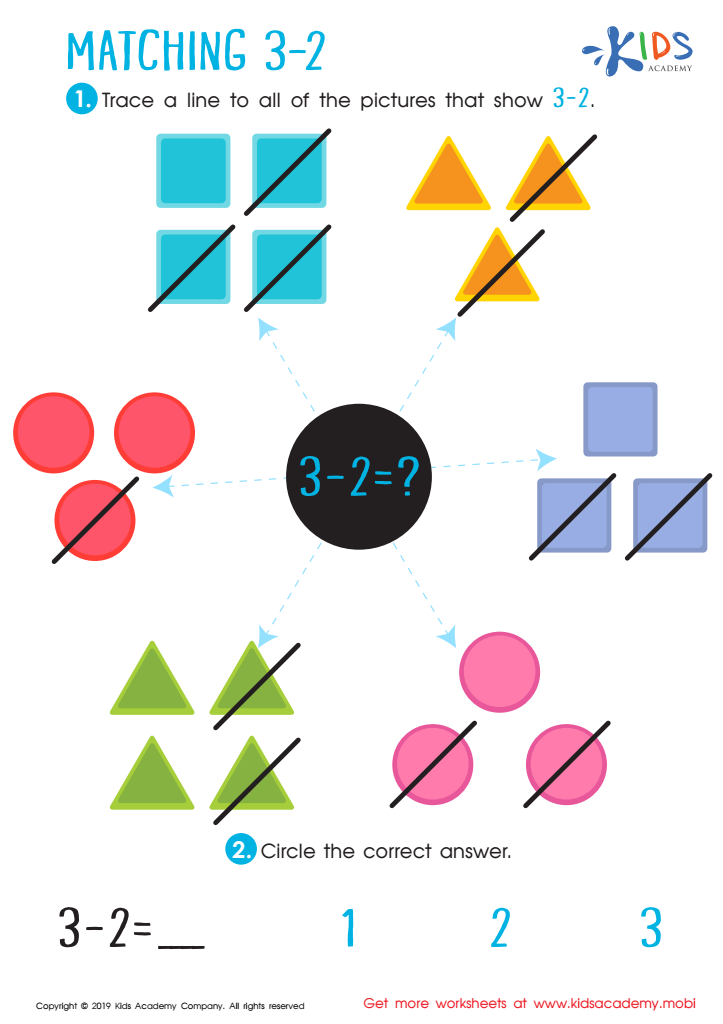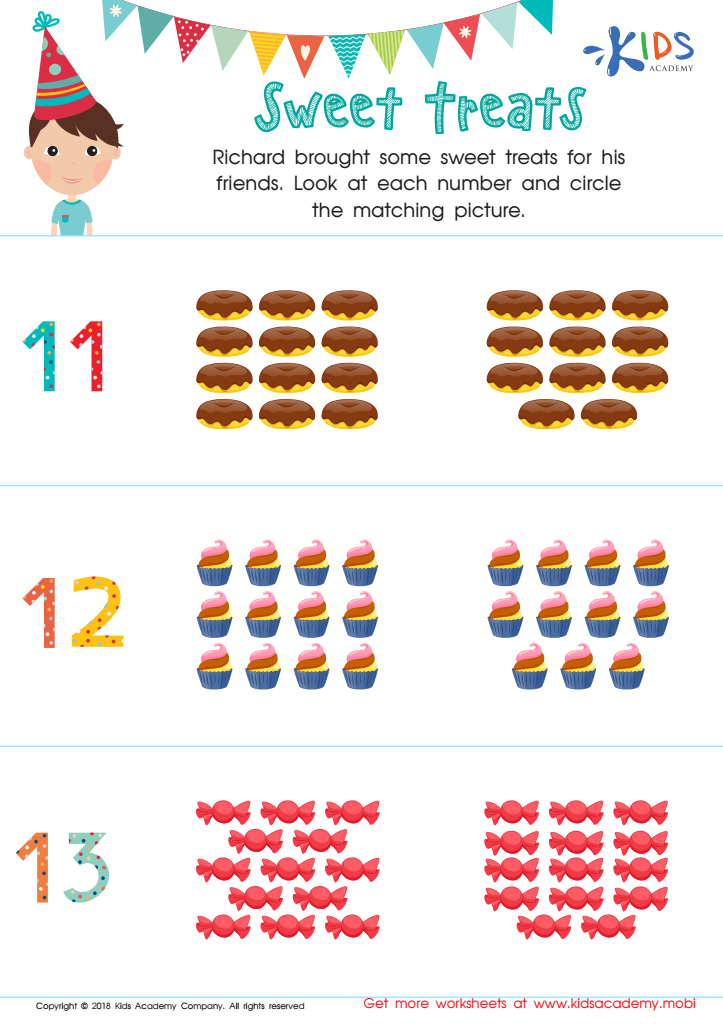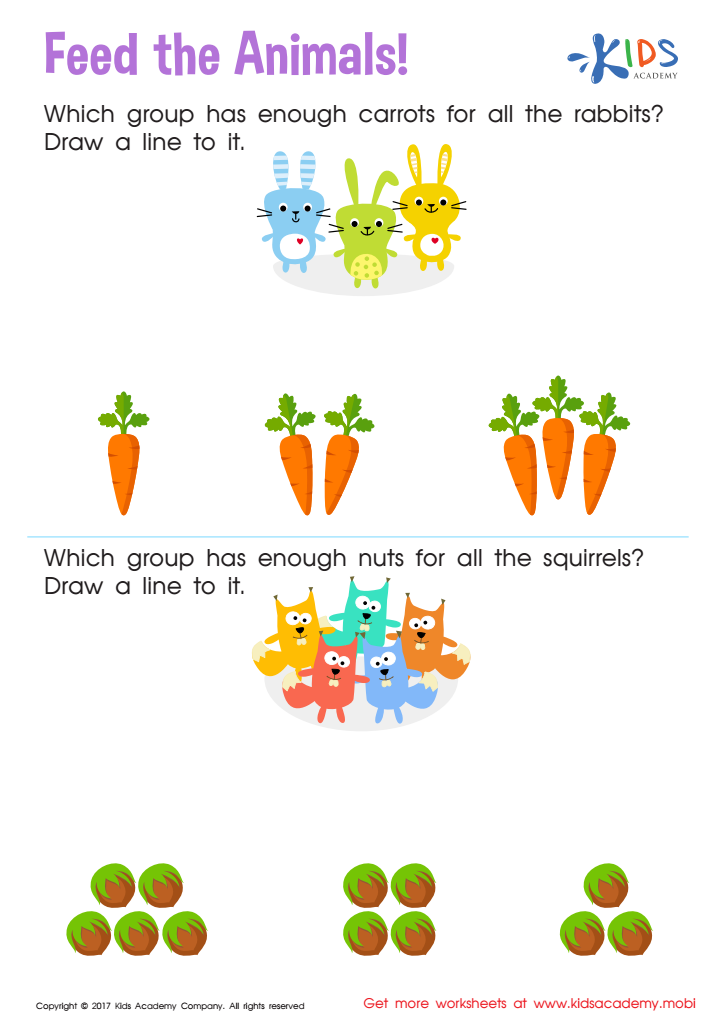Number Matching Extra Challenge Worksheets for Ages 3-4
4 filtered results
-
From - To
Explore our engaging "Number Matching Extra Challenge Worksheets" designed specifically for ages 3-4! These worksheets offer an exciting way for young learners to enhance their number recognition and matching skills through fun, interactive activities. With vibrant illustrations and age-appropriate tasks, children will effortlessly connect numbers to their corresponding quantities while developing their cognitive abilities. Perfect for at-home learning or classroom enrichment, these worksheets promote essential foundational skills in mathematics. With a variety of challenges to choose from, kids will build confidence and have a blast as they embark on their number-matching adventures! Check them out today for a rewarding learning experience!


Match and Solve: Cupcakes Problem Worksheet


Matching 3-2 Worksheet


Kindergarten Math Worksheet Matching Numbers


Count and Match: Feed the Animals Worksheet
Number Matching Extra Challenge for Ages 3-4 is a vital educational tool that nurtures early mathematical skills in young learners. Parents and teachers should prioritize this activity because it lays a foundational understanding of numbers, which is essential for future math proficiency. At this age, children are naturally curious and eager to explore concepts, making it an ideal time to introduce number recognition and matching.
Engaging in number matching activities enhances cognitive development and supporting memory, paving the way for critical thinking skills. This challenge also promotes fine motor skills as children manipulate objects to match numbers, marrying physical activity with learning. Furthermore, this exercise often involves a playful element, allowing for a fun learning environment that keeps children motivated and involved.
Additionally, parental and teacher involvement fosters a positive attitude towards mathematics, helping to combat common math anxiety seen later in schooling years. By encouraging practices like Number Matching, adults actively support a child’s love for learning and boost their self-confidence. Ultimately, investing time in such activities sets children up for academic success and lifelong skills, making it imperative for parents and teachers to recognize and implement these challenges in early childhood education.
 Assign to My Students
Assign to My Students






.jpg)












